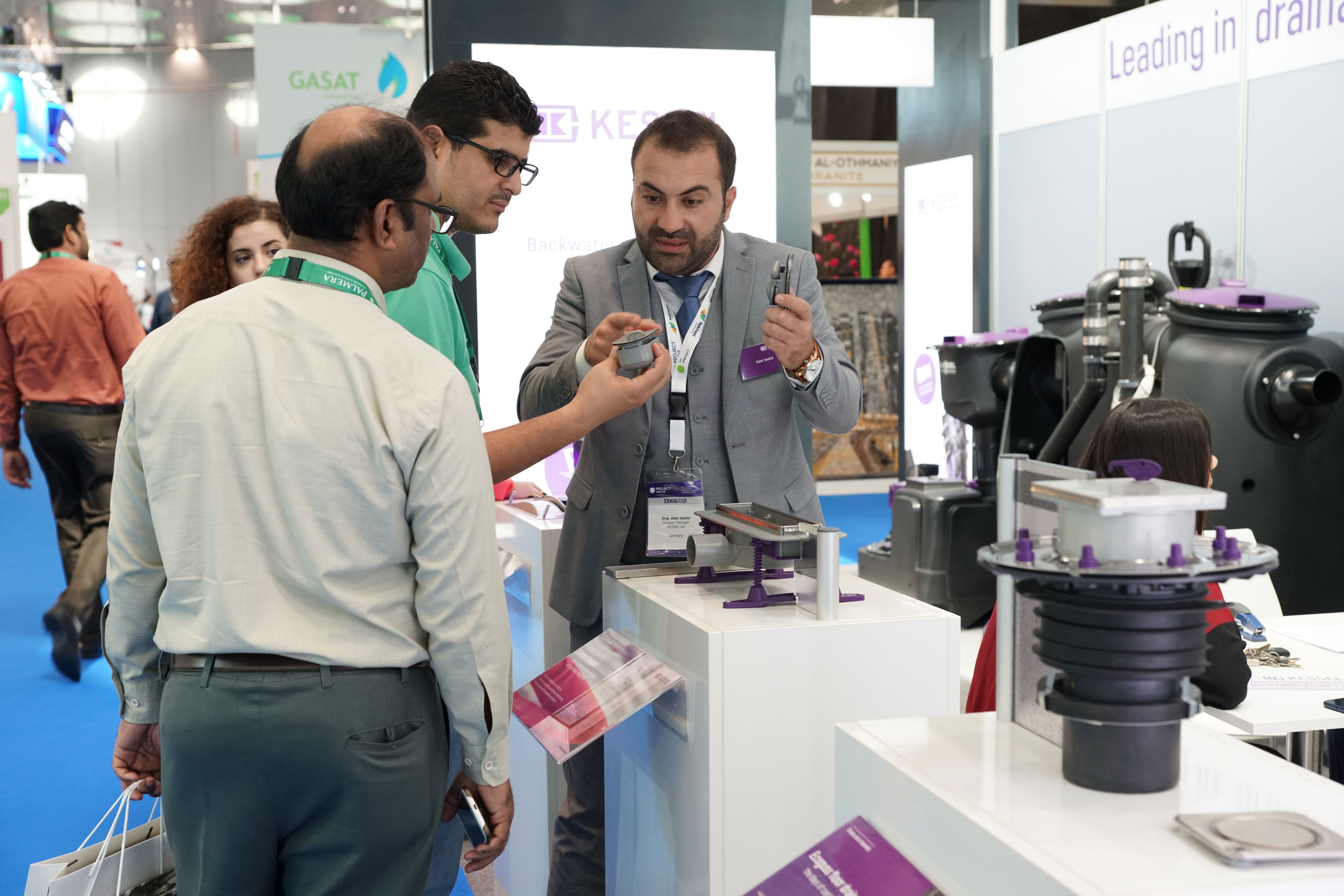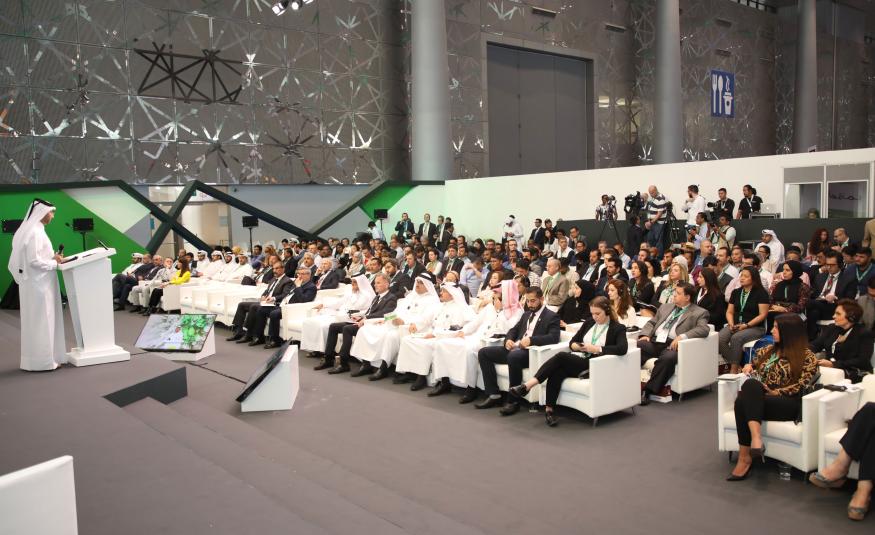Albert Aoun, CEO of IFP Group and Head of the UFI Middle East Chapter, on encouraging youth and innovation for future regional success.
What first attracted you to work in the global events industry and what early challenges did you face?
My first experience in the exhibitions industry dates back to 38 years ago in Saudi Arabia where my brother and I recognised a golden opportunity in a market that was in its early development stages.
Despite the fact that the notion of events was foreign to the Saudi market at the time, we started to experiment with small-scale exhibitions. In fact, our first motor show in Jeddah was held in an inflatable tent that we had brought from Germany.
Slowly but surely, we moved to Riyadh and started Riyadh Exhibitions Company with very prominent Saudi partners , and expanded our events profile into the leading exhibitions company in the GCC for many years.
In the 1990s I returned to Lebanon upon the request of the late Prime Minister, H.E. Rafic Hariri, to develop exhibitions designed to highlight business opportunities and contribute to developing the local economy. This marked the launch of Project Lebanon; the country’s first international exhibition for construction materials and equipment, which is proudly celebrating its 24th edition this year.
Has your business developed more or less as planned? Have you had to change strategy over the years to succeed in the Middle East?
We’ve had our ups and downs, but I believe IFP Group’s strength boils down to recognising a market’s potential, gaining valuable insights, and navigating any difficulties that may arise in the region’s changing landscape.
IFP Group has managed to overcome obstacles and forge ahead with an expansion strategy that initiated from a humble beginning in Saudi Arabia and spread to the United Arab Emirates, then Qatar, then Iraq, with presence in Erbil followed by Baghdad. After that, IFP Group’s footprint expanded to Africa, as we secured our presence in Egypt’s multi-billion market that also serves as a gateway to other African markets.

What has historically been your toughest challenge in the Middle East market and how easy has it been to bring solutions? What are today’s key issues exercising the industry in the region?
The exhibitions industry in the Middle East is strongly linked to economic and political opportunities and challenges. The region has historically witnessed an ever-changing landscape, and we have had to adapt quickly to new circumstances as they arise.
Another challenge my business faces is the increasingly competitive industry driven by the influx of foreign players establishing a presence in the regional market.
The rise of e-commerce in the last few years is also putting pressure on the exhibitions industry, with an increasing number of traders and suppliers connecting to buyers through virtual platforms and bypassing face-to-face interactions that tradefairs build upon. On the other hand, transitioning the mindset of exhibitors to focus on specialised exhibitions rather than general tradefairs and attracting the youth to attend such events, are some of the other issues that we witness in the region’s exhibitions industry.
What is the key to successfully working with venues and exhibitors on this regional market. How does it differ from working in other regions of the world and what are the regional hotspots?
There are various factors that come into play when organising events in the region. You need to deliver genuine business opportunities and connect exhibitors to top decision-makers from public and private sectors to set business in motion.
As for working with venues, providing profile protection for an exhibition is necessary to maintain a competitive edge.
When it comes to venues, the dynamics can differ between regions. In many countries, venues are owned by the government and provide leeway for organising exhibitions, with a focus on developing local industries and communities, with fewer restrictions.
However, many regional venues are privately-owned, may request a share of the revenues and apply certain restrictions for using outside services (for example, catering and stand-building). This would also increase the asking price per square metre for exhibitors.
I believe that Egypt and the GCC are highly-attractive for the tradefair business. On the other hand, Iraq is an emerging market that cannot be overlooked. Despite political and security fluctuations that Iraq has witnessed over the past few years, it is up to us as tradefair organisers to show potential international exhibitors that rapid changes bring big opportunities, and also highlight the government’s commitment to fighting corruption and developing the economy.

What trends do you observe in the regional market and where will you be placing you own emphasis in future to win more business? Can we expect new launches and what of M&A activity?
The Middle East exhibitions market has seen remarkable expansion in the last few years and is now highly-competitive. It is crucial to stay on your toes and be ready to adapt to any shifts in the market. Embracing innovation and moving away from generalised exhibitions towards more sector-specific ones that provide more value is one observed trend in the region.
At IFP, we are continuously working on developing new concepts and exploring new sectors that have big business potential. In Lebanon for example, we are tackling the processing, packaging, printing, and paper sectors with the 4P East Med exhibition, as well as the technological scene with our Sustainable Digital Economic Summit. On the other hand, we are moving forward with Confex-style events within various sectors to test out new and existing markets. These events are stepping stones to potential large-scale international exhibitions.
What are your personal goals for the next five years and beyond? And how does a busy CEO spend his rare free time?
As President of the Lebanese Italian Business Council (LEBITALIA), I’m keen on developing the synergy between Lebanese and Italian businesses, and establishing sustainable relations in economic, industrial, and trade fields that will strengthen local businesses, and help create more jobs.
On a personal level, I enjoy hikes with family and friends in my parents’ pine-embraced village that is very dear to me. It is a beautiful town nestled in the Mount Lebanon region, just 23km from Beirut. I have refurbished an abandoned silk factory there and turned it into a beautiful retreat that contributes to reviving the village and creates numerous jobs for the local people. I believe giving back to the community is very important.
What were the main takeaways the recent UFI Conference in Dubai and the challenges and successes involved with being part of the organisation of the event? How is the Middle East Chapter faring?
The recent UFI Conference in Dubai was a remarkable experience that brought together the movers and shakers of the industry.
Engaging the youth in the exhibitions industry and transforming it into a more engaging and rewarding experience were key highlights of the discussions. Initiatives such as B2B Matchmaking, Hosted Buyers Programme, Live shows, professional workshops and edutainment are proving to be necessities for organisers to deliver successful and impactful events.
After three years of missing a regional MEA conference, the UFI Chapter is now in a better state, especially after appointing an Area Manager in Dubai, and more contact is being made with the chapters’ members.





